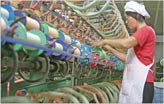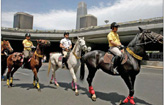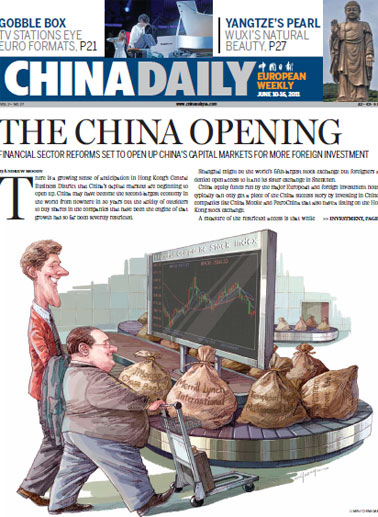From Chinese media
Ripe time for automated trading in China's capital markets
Updated: 2011-06-10 15:54
By Hu Yang (chinadaily.com.cn)
Algorithmic trading, the using of computer programs to decide when and how to trade certain assets such as stocks and derivatives, will bring new opportunities to Chinese investors, and China's financial markets will accordingly become more efficient, says an executive from Progress Software Corporation, a leading software provider.
Dr Giles Nelson, Deputy Chief Technical Officer (CTO) of Progress, said many Asian countries are adopting algorithmic trading, and it would be unwise for China to shun away from the advantages offered by new technology, especially when everybody else is doing so.
The company has decided to tap into the Chinese market. It held a seminar on Thursday in Beijing to introduce their software, which is used to conduct algorithmic trading, to potential customers, including traders in futures, derivatives and foreign exchanges in China.
Nelson said the company will hopefully announce its first customer from the Chinese mainland in just a few months' time.
| ||||
Algorithmic trading divides large-scale transactions into smaller transactions in order to reduce impact on the market and manage risks. A subcategory of the trading is high-frequency trading, which makes the speed of trade much faster than human beings can observe.
But the trading method itself is not without risk. Last year's famous "flash crash," during which the US stock market plunged almost 1,000 points in minutes, was caused by a computer system failure.
Nelson said he remained confident in technology and algorithmic trading, since the subsequent probe into the "flash crash" found out that the regulator's technology is 20 years behind the traders'. He believed to avoid such risks the regulators should also adopt the latest technologies in monitoring trading. Progress also develops monitor and surveillance programs for regulators and exchanges.
China's algorithmic trading is still at a primitive stage, but Nelson said he is optimistic because this also implies huge market potential. He praised the development of algorithmic trading in emerging markets like Brazil and India, saying China needs to catch up with its counterparts.
China has been cautiously reforming and opening up its financial markets, introducing short selling, margin trading and stock index futures last year and is planning for renminbi options.
Nelson thinks China's regulators could adopt new innovations, such as algorithmic trading, in international financial markets and localize them, so its own market can be innovative and competitive.
He said Brazil has set a great example in developing algorithmic trading by learning from both merits and mistakes in the developed markets.
Deutsche Bank AG will offer two algorithmic trading products for Brazilian stocks. Citigroup Inc began offering algorithmic trading in Brazil in March, following Goldman Sachs Group Inc last year and UBS AG and Bank of America Corp in 2009, according to a Bloomberg report.
"Algorithmic trading is the general trend both hear and everywhere else," said Tang Jian from the China Galaxy Securities Co Ltd, who attended the seminar by Progress. "With the introduction and development of derivatives in China, the potential room for algorithmic trading is promising," he added.
E-paper

Pearl on the Yangtze
Wuxi is considered a town of natural beauty and its motto is "city of water and warmth".
Prose and consternation
Riding on a mystery train
Way of a warrior
Specials

Wealth of difference
Rich coastal areas offer contrasting ways of dealing with country's development

Seal of approval
The dying tradition of seal engraving has now become a UNIVERSITY major

Making perfect horse sense
Riding horses to work may be the clean, green answer to frustrated car owners in traffic-trapped cities




